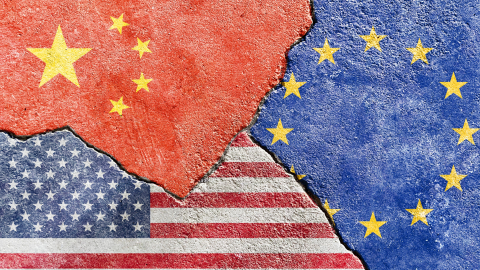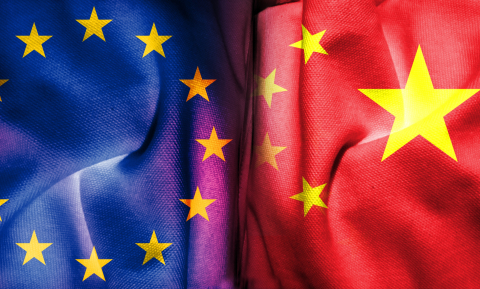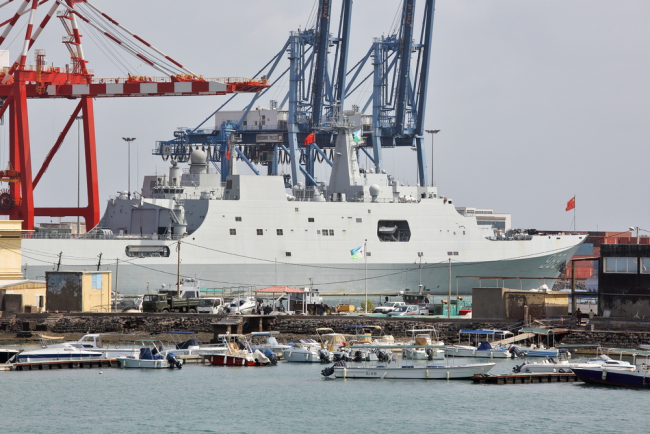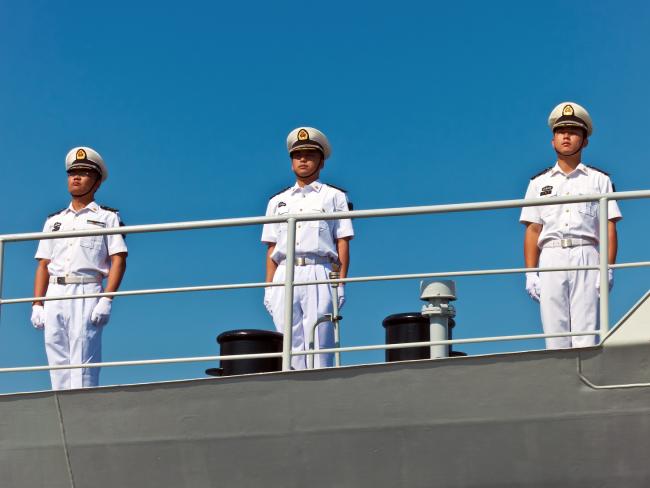
The TPP and its consequences for China, and Europe
John Seaman answers questions from the China Daily on the recently concluded negotiations of the Trans-Pacific Partnership (TPP) and their consequences for China and for Europe.
Read the interview, in Chinese
China’s Difficult, but Necessary Bet on Climate
While China may be setting the bar high for itself in it's commitments for the COP21 climate negotiations this December, these ultimately serve to foster necessary progress on environmental issues and economic reforms at home.
Washington and Beijing, between competition and interdependence
During his state visit in the United States, the Chinese President Xi Jinping called for a new model of relations between the two countries. In Alice Ekman’s opinion, the notion of a “new type of major power relations” invoked by China implies the establishment of a relationship that would put the country on an equal footing with the United States.


The defense posture of China
Alice Ekman comments the defense posture of China as Beijing is holding a large military parade on September 3rd.


El desfile militar pone a prueba las tensas relaciones entre China y Japón
Los actos que esta semana organiza China para conmemorar el 70 aniversario de su victoria ante Japón, coronados por un desfile militar en la plaza de Tiananmen, plantean un nuevo desafío a los lazos entre Pekín y Tokio, ya dañados en los últimos años por desavenencias históricas y territoriales.



Shanghai’s stock market woes hit European financial centers
Claude Meyer answers Jean-Baptiste Boursier’s questions in “le Grand Angle” on BFMTV.


China’s growth declines, stock markets fall: what consequences should we be worried about?
All the European stock exchanges declined on Monday, as concerned investors looked with pessimism at China’s slowing growth. Paris lost 5.35 %. Claude Meyer discusses what consequences can be expected.


The economic consequences of Tianjin’s explosions
Five days after Tianjin’s impressive explosions, Toyota announced a three-day stop in the production of its city’s sites. The Japanese company is far from being the only one concerned.
The region, also known as Beijing’s maritime gateway, is one of the most dynamic in the country. No less than 540 million tones of merchandise transit through its harbor every year, making it the fourth biggest in the world.
“Tianjin is one of the spearheads of the Chinese economy”, summarizes Claude Meyer. “This catastrophe concerns about 300 multinationals among the world’s most important ones”. What will be the impact of these explosions on the Chinese economy?


"The Yuan isn’t ready to replace the Dollar"
China’s ambition is to become a great financial power. But the necessary reform of its financial system and its will to act progressively could mean that it will be a long time before its exchange rate system is liberalized. Can the Yuan realistically become an international currency?
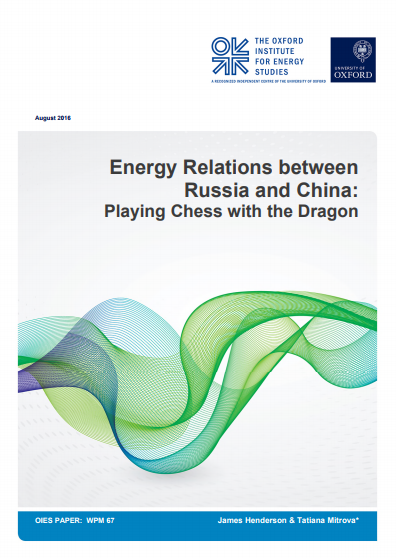
Energy Relations between Russia and China: Playing Chess with the Dragon
Post-sanctions Russia-China energy relations: what expectations?
The China-Pakistan Economic Corridor and the New Regional Geopolitics
The China-Pakistan Economic Corridor (CPEC) brings a dimensional shift in the two countries' relations at a time of significant geopolitical change. But while it promises wide-ranging benefits for infrastructure development and economic growth in Pakistan, a number of important challenges remain to be overcome if the project is to be sustainable and produce long-term benefits for Pakistanis.
South China Sea and the Law of the Sea: Where is China’s Power Heading?
On Tuesday July 12th, after three years of deliberations, the Permanent Court of Arbitration finally delivered its verdict on the conflict opposing the Philippines and China over status of the Spratly Islands in the South China Sea. The judgment is historic, as it goes far beyond the expectations of the involved parties and observers.
China in Djibouti: A military base with Chinese characteristics?
Last February, the Chinese Defense Ministry confirmed the launch of the construction of a Chinese military base in Djibouti. For a long time, Chinese officials had insisted that China would never build military bases or to station troops abroad.
China’s Military Deployments in the Gulf of Aden: Anti-Piracy and Beyond
The reason for the deployment of a People’s Liberation Army Navy (PLAN) “anti-piracy task force” in the Gulf of Aden (GoA), a key area for the Chinese economy, was obvious in 2008. However, as the pirate activity has faded away since 2012, the objectives of the PLAN in GoA became unclear.

China’s rise: the view from South Korea
Monitoring China-South Korea relations is key for the EU, as both countries have been designated strategic partners. Moreover, the Union has important economic ties to both, and signed a free trade agreement (FTA) with the Republic of Korea (ROK) in 2011.
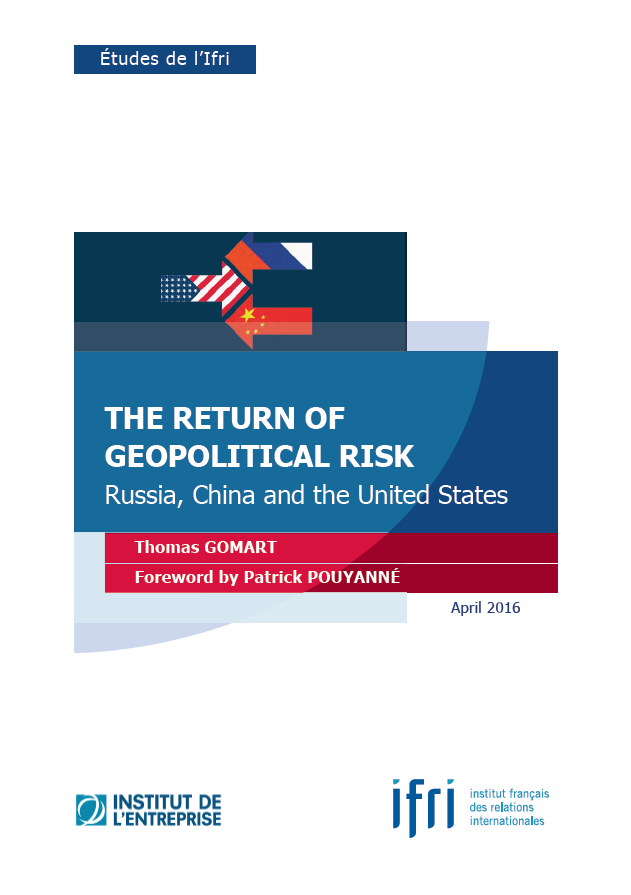
The Return of Geopolitical Risk - Russia, China and the United States
The year 2014 was defined by the conflict in Ukraine, the emergence of Daesh, and tensions between China and Japan. As for 2015, it has witnessed the spread of Daesh, the conflict in Yemen, the Greek crisis, revelations about the activity of the National Security Agency (NSA), the migrant crisis, and a ramping-up of terrorist attacks.
Scientific Cooperation in the South China Sea: A vector for China's security diplomacy in Southeast Asia?
In the South China Sea, the field of marine science could be seen as a catalyst for functional cooperation in the region. In reality, it often reflects regional asymmetries and has become yet another domain in which the weight of China is ultimately a destabilizing factor, according to Sophie Boisseau du Rocher.

Taiwan after the elections: what next?
On 16 January, the independence-leaning Democratic Progressive Party (DPP) won a double victory over the ruling party, the Kuomintang (KMT). DPP candidate Tsai Ing-wen was elected president with 56% of the vote, and for the first time the party won a majority in the Legislative Yuan – Taiwan’s parliament – with 68 of the 113 seats.
China vs. USA: After South China Sea, the Arctic as a Second Act
The focus on the power confrontation between China and the U.S. has for a while been directed towards the South China Sea, but a focus should be given to the Arctic region, where the second act is already ongoing.
Support independent French research
Ifri, a foundation recognized as being of public utility, relies largely on private donors – companies and individuals – to guarantee its sustainability and intellectual independence. Through their funding, donors help maintain the Institute's position among the world's leading think tanks. By benefiting from an internationally recognized network and expertise, donors refine their understanding of geopolitical risk and its consequences on global politics and the economy. In 2024, Ifri will support more than 70 French and foreign companies and organizations.






